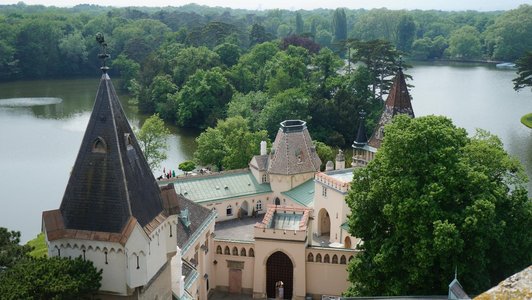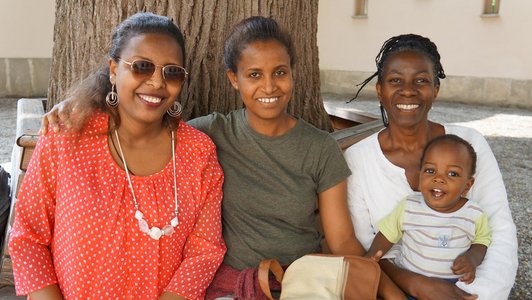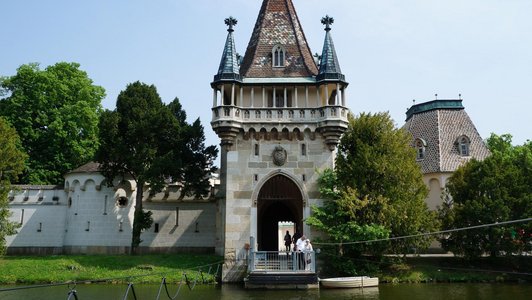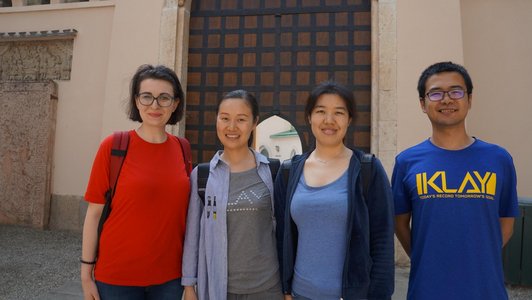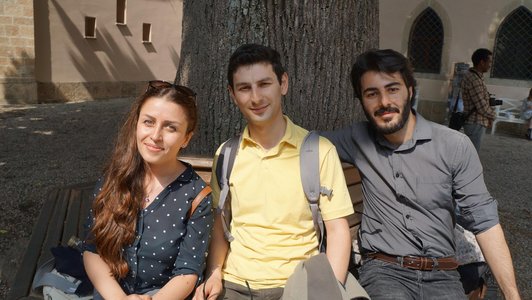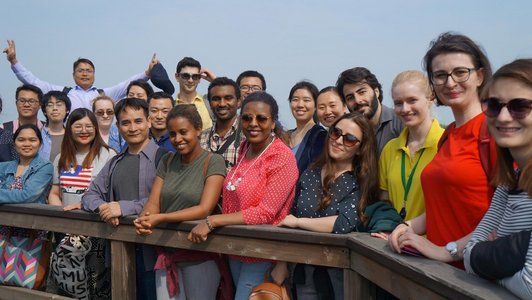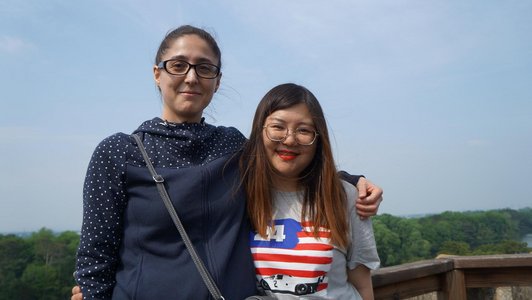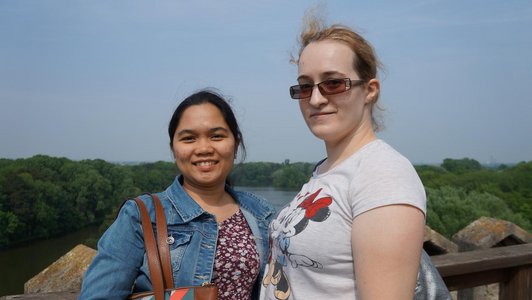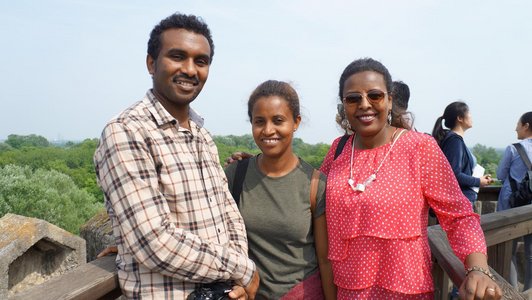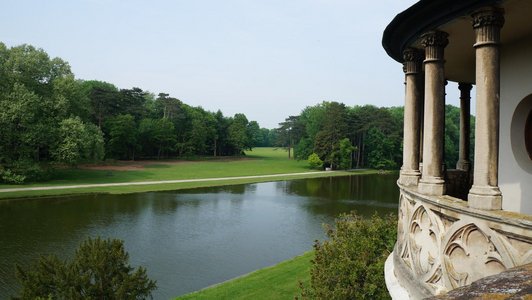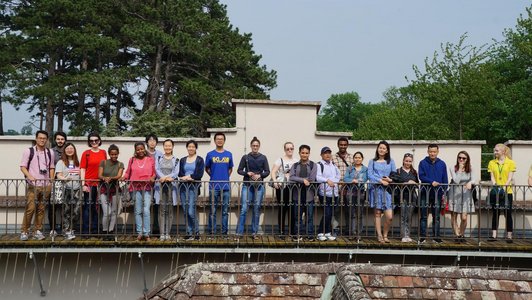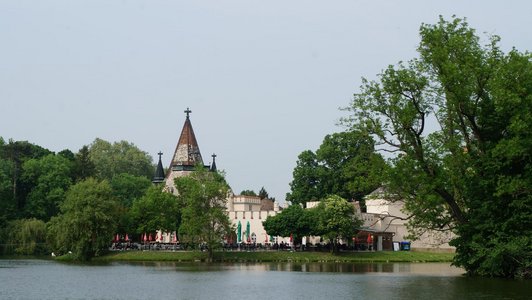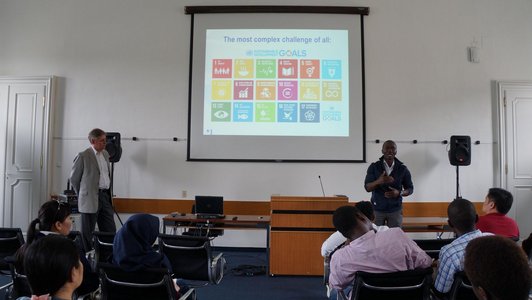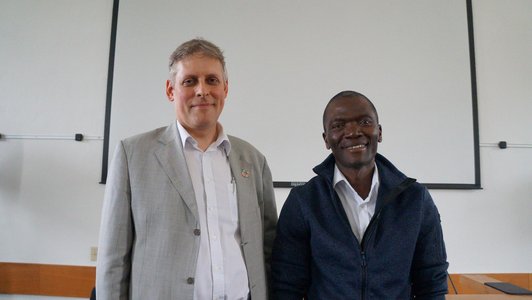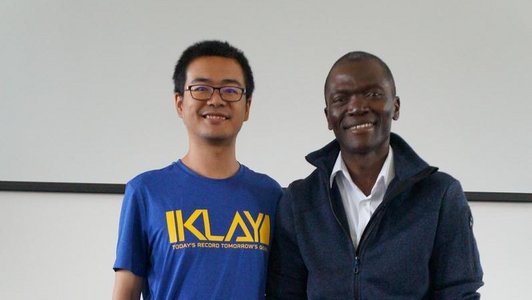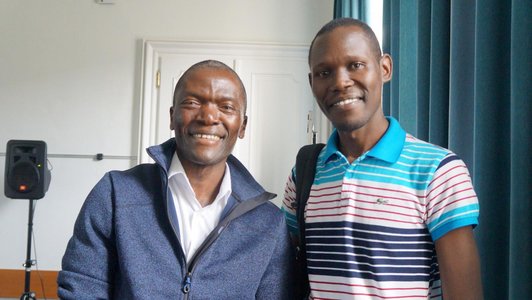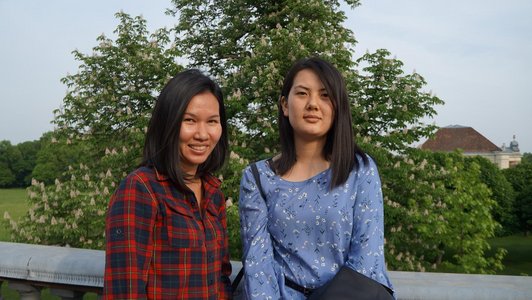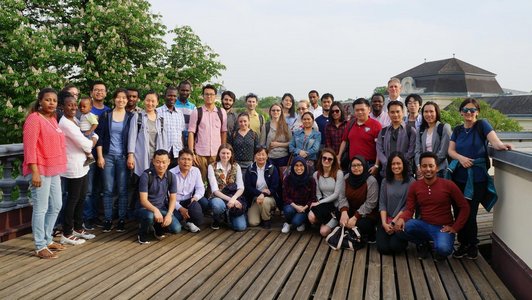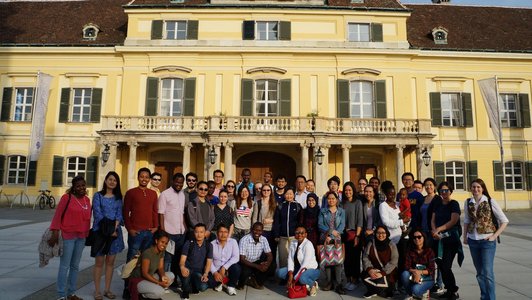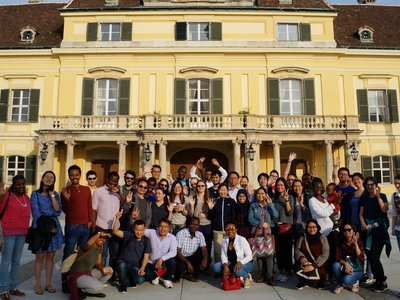

Laxenburg is located 15 km south of Vienna and it was - beside Schönbrunn –the preferred summer residence of the imperial family. Our visit started with a walk through the gardens of Laxenburg to the “Franzensburg”, which is a castle in the midst of the pond landscape of Laxenburg gardens. This castle was built between 1801 and 1836 in medieval style and was not used for living but as a museum. On the High Tower we enjoyed a wonderful view above the roofs of the Franzensburg and the gardens. On the horizon we could even see the skyline of Vienna.
Afterwards we were welcomed to the International Institute for Applied Systems Analysis – IIASA, by Jan Marco Müller, who gave us an overview of IIASA’s history, their current research and the possibilities they offer to young researchers. IIASA is situated in a former imperial palace called “Blauer Hof” and was founded to promote East-West scientific cooperation during the Cold War. Today more than 450 scientists do research on the critical issues of global environmental, economic, technological, and social change. Their findings provide valuable options to policy-makers to shape the future of our changing world.
We have also met Paul Yillia a former scholarship holder and a guest research scholar at IIASA. Besides his academic and scientific journey he talked about the 17 Sustainable Development Goals (SDGs), his work with the UN initiative “Sustainable Energy for All (SEforALL)” and cooperation possibilities with IIASA. Our visit was concluded by a historical tour through the palace.

